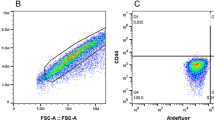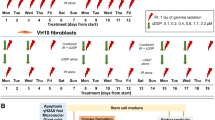Abstract
The intrinsic radiosensitivity of cervical carcinoma has been measured using a soft agar clonogenic assay. All patients received radical radiotherapy alone with a minimum of 2 years post-treatment follow-up. Only women with stage I, II and III disease were included in the analysis. Values for cell surviving fraction at 2 Gy (SF2) were obtained for 88 tumours with an assay success rate of 73%. The 53 patients alive and well at the time of analysis had tumours with a mean SF2 that was significantly lower than the value from the 22 patients with locoregional failure (P < 0.01). Patients with radioresistant tumours (SF2 > 0.40, the median) had a significantly lower 3 year survival level than those with sensitive tumours (SF2 < or = 0.40) (P = 0.002). Also the frequency of local recurrence was higher (P = 0.001) whether these were central (P = 0.009) or peripheral (P = 0.046). Cell surviving fraction at 3.5 Gy was obtained for 46 tumours and the 3 year patient survival rate was significantly higher for those with SF3.5 values less than the median (P = 0.043). There was, however, no difference in the level of local recurrence (P = 0.24). The ability to grow in culture was not associated with significantly poorer patient survival (P = 0.56) or failure to control the primary disease (P = 0.17). While high colony forming efficiencies were associated with an increased rate of local recurrence (P = 0.029) they did not predict for overall patient survival (P = 0.32). These data suggest that, for cervical carcinoma treated with radical radiotherapy, intrinsic radiosensitivity is important in determining treatment outcome.
This is a preview of subscription content, access via your institution
Access options
Subscribe to this journal
Receive 24 print issues and online access
$259.00 per year
only $10.79 per issue
Buy this article
- Purchase on Springer Link
- Instant access to full article PDF
Prices may be subject to local taxes which are calculated during checkout
Similar content being viewed by others
Author information
Authors and Affiliations
Rights and permissions
About this article
Cite this article
West, C., Davidson, S., Roberts, S. et al. Intrinsic radiosensitivity and prediction of patient response to radiotherapy for carcinoma of the cervix. Br J Cancer 68, 819–823 (1993). https://doi.org/10.1038/bjc.1993.434
Issue Date:
DOI: https://doi.org/10.1038/bjc.1993.434
This article is cited by
-
A general mechanistic model enables predictions of the biological effectiveness of different qualities of radiation
Scientific Reports (2017)
-
miRNAs: micro-managers of anticancer combination therapies
Angiogenesis (2017)
-
Clinical development of new drug–radiotherapy combinations
Nature Reviews Clinical Oncology (2016)
-
Strategies to improve radiotherapy with targeted drugs
Nature Reviews Cancer (2011)
-
Ionizing radiation activates IGF-1R triggering a cytoprotective signaling by interfering with Ku-DNA binding and by modulating Ku86 expression via a p38 kinase-dependent mechanism
Oncogene (2007)



